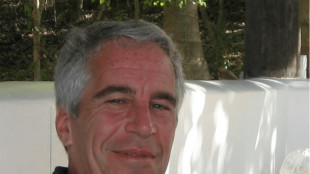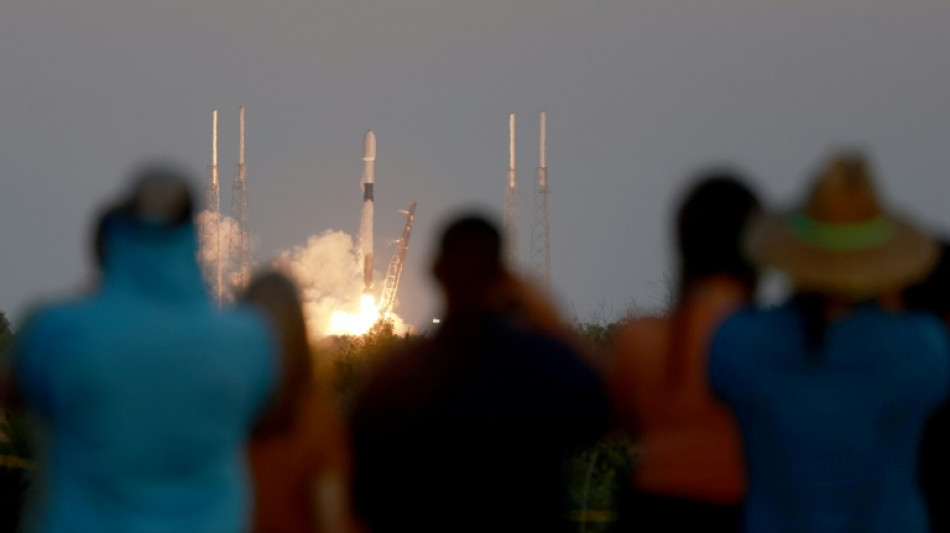
-
 Atletico rout Barca in Copa del Rey semi-final first leg
Atletico rout Barca in Copa del Rey semi-final first leg
-
Arsenal held by Brentford to offer Man City Premier League title hope

-
 US snowboard star Kim 'proud' as teenager Choi dethrones her at Olympics
US snowboard star Kim 'proud' as teenager Choi dethrones her at Olympics
-
Chloe Kim misses Olympic milestone, Ukrainian disqualfied over helmet

-
 Tech shares pull back ahead of US inflation data
Tech shares pull back ahead of US inflation data
-
'Beer Man' Castellanos released by MLB Phillies

-
 Canada PM to join mourners in remote town after mass shooting
Canada PM to join mourners in remote town after mass shooting
-
Teenager Choi wrecks Kim's Olympic snowboard hat-trick bid

-
 Inter await Juve as top guns go toe-to-toe in Serie A
Inter await Juve as top guns go toe-to-toe in Serie A
-
Swiatek, Rybakina dumped out of Qatar Open
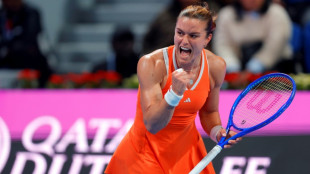
-
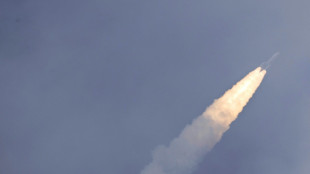 Europe's most powerful rocket carries 32 satellites for Amazon Leo network into space
Europe's most powerful rocket carries 32 satellites for Amazon Leo network into space
-
Neighbor of Canada mass shooter grieves after 'heartbreaking' attack

-
 French Olympic ice dance champions laud 'greatest gift'
French Olympic ice dance champions laud 'greatest gift'
-
Strange 'inside-out' planetary system baffles astronomers

-
 Teenager Choi denies Kim Olympic snowboard hat-trick
Teenager Choi denies Kim Olympic snowboard hat-trick
-
Swiss bar owners face wrath of bereaved families
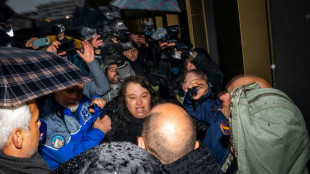
-
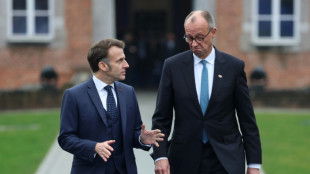 EU vows reforms to confront China, US -- but split on joint debt
EU vows reforms to confront China, US -- but split on joint debt
-
Rubio heads to Munich to heap pressure on Europeans
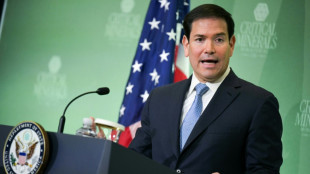
-
 Less glamour, more content, says Wim Wenders of Berlin Film Fest
Less glamour, more content, says Wim Wenders of Berlin Film Fest
-
What is going on with Iran-US talks?
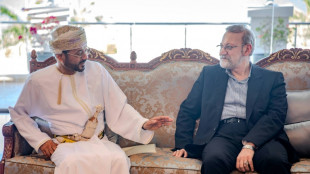
-
 Wales 'means everything' for prop Francis despite champagne, oysters in France
Wales 'means everything' for prop Francis despite champagne, oysters in France
-
Giannis out and Spurs' Fox added to NBA All-Star Game

-
 The secret to an elephant's grace? Whiskers
The secret to an elephant's grace? Whiskers
-
Chance glimpse of star collapse offers new insight into black hole formation

-
 UN climate chief says 'new world disorder' threatens cooperation
UN climate chief says 'new world disorder' threatens cooperation
-
Player feels 'sadness' after denied Augusta round with grandsons: report
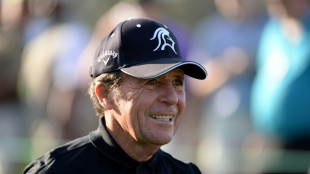
-
 Trump dismantles legal basis for US climate rules
Trump dismantles legal basis for US climate rules
-
Former Arsenal player Partey faces two more rape charges

-
 Scotland coach Townsend adamant focus on England rather than his job
Scotland coach Townsend adamant focus on England rather than his job
-
Canada PM to visit town in mourning after mass shooting

-
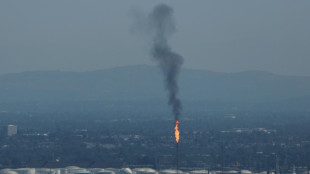 US lawmaker moves to shield oil companies from climate cases
US lawmaker moves to shield oil companies from climate cases
-
Ukraine says Russia behind fake posts targeting Winter Olympics team

-
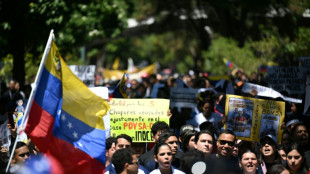 Thousands of Venezuelans stage march for end to repression
Thousands of Venezuelans stage march for end to repression
-
Verstappen slams new cars as 'Formula E on steroids'
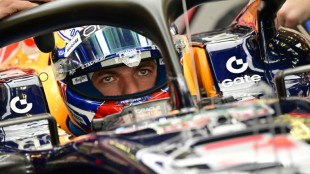
-
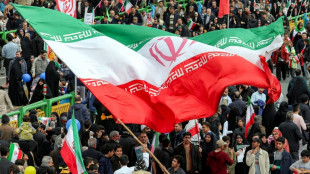 Iranian state TV's broadcast of women without hijab angers critics
Iranian state TV's broadcast of women without hijab angers critics
-
Top pick Flagg, France's Sarr to miss NBA Rising Stars

-
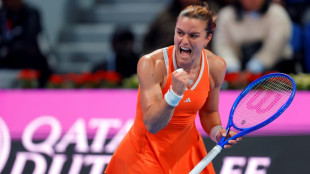 Sakkari fights back to outlast top-seed Swiatek in Qatar
Sakkari fights back to outlast top-seed Swiatek in Qatar
-
India tune-up for Pakistan showdown with 93-run rout of Namibia
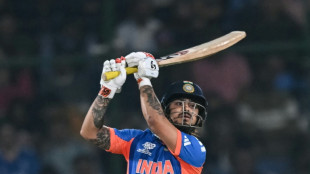
-
 Lollobrigida skates to second Olympic gold of Milan-Cortina Games
Lollobrigida skates to second Olympic gold of Milan-Cortina Games
-
Comeback queen Brignone stars, Ukrainian banned over helmet

-
 Stocks diverge as all eyes on corporate earnings
Stocks diverge as all eyes on corporate earnings
-
'Naive optimist' opens Berlin Film Festival with Afghan romantic comedy

-
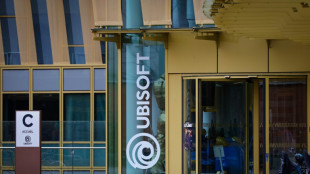 'Avatar' and 'Assassin's Creed' shore up troubled Ubisoft
'Avatar' and 'Assassin's Creed' shore up troubled Ubisoft
-
'Virgin' frescoes emerge from Pompeii suburb
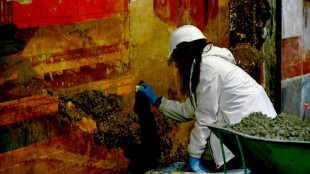
-
 Ukrainian's disqualification from Winter Olympics gives Coventry first test
Ukrainian's disqualification from Winter Olympics gives Coventry first test
-
As Greenland storm passes, US allies focus on stepping up in NATO
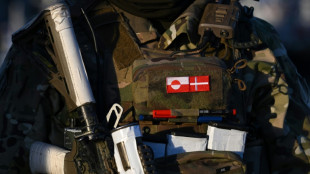
-
 Brignone, the Italian tigress who battled injury into history books
Brignone, the Italian tigress who battled injury into history books
-
Odobert ACL tear adds to Spurs injury crisis

-
 Marseille aim to pick up pieces after De Zerbi departure
Marseille aim to pick up pieces after De Zerbi departure
-
UK nursery worker jailed for 18 years for 'wicked' serial child sex abuse


Satellite constellations multiply on profit hopes, geopolitics
The massive constellation of satellites operated by SpaceX, while still growing, will soon be joined in low Earth orbit by many more commercial competitors, but also government-sponsored programs.
When firms floated the idea of expanding access to high-speed internet through satellite constellations in low Earth orbit (LEO), analysts expected only two or three companies would succeed.
"But the number of players keeps growing," Caleb Henry, research director at Quilty Analytics, told AFP at the annual SATELLITE conference in Washington.
He said there are now at least eight companies vying to launch or complete their LEO constellations, including early entrants SpaceX and OneWeb, which could see a ballooning number of objects in orbit.
Amazon alone hopes to launch over 3,200 satellites as part of its stealthy "Kuiper" project.
But governments are also keen to join the rush.
China plans to launch 13,000 satellites as part of its GuoWang constellation, while Canada's Telesat will add 300 and German start-up Rivada is eyeing 600.
That will be in addition to the European Union's Iris project -- 170 satellites -- and the 300-500 satellites planned to be launched by the US military's Space Development Agency.
When it comes to the satellite constellation game, "people underestimated how sovereign interests would get involved," Henry said.
- Sustainability in space -
While around 120 satellites were launched in all of 2012, in just the first two months of this year, almost 380 were put into orbit.
The total number of LEO satellites should rise to about 24,500 over the next decade, with more than half of them for the three largest constellations, according to forecasts by Euroconsult.
Henry believes there is an open question over how the market will digest all this added capacity.
Mark Dankberg, president of satellite communications firm Viasat -- which operates in the much higher geostationary orbit -- -- said he would be interested in entering the LEO market, but doesn't want big players in the space industry to crowd out competitors.
"We’re interested in LEO, the thing we’re concerned about is leaving enough competition in the market," Dankberg said.
He also warned about the issue of sustainability -- with so many objects in orbit, risks increase of collisions, spreading debris, and frequencies becoming overloaded.
The largest player by far in LEO is Elon Musk's SpaceX, which has already launched nearly 3,600 satellites and in December received authorization to deploy 7,500 of its planned 30,000-satellite second generation constellation.
- Ukraine gas pedal -
Starlink's one million customers is still second place to the lesser-known Hughes, also a US-based operator but whose satellites, like Viasat, are much larger and fly in geostationary orbit.
Oneweb, the British operator in the process of being acquired by Eutelsat, completed its penultimate launch in early March and is expected to have completed its 650-satellite constellation by the end of the month.
The head of Amazon's Kuiper project, Dave Limp, said they will launch their first two prototypes in May and are "on schedule to have over half of our constellation up by mid-2026," a requirement to keep its rights to certain frequencies.
But when it comes to government-sponsored projects, such as the EU's Iris, "commercial utility comes second."
"The idea is... working together on defense," Henry said of Iris.
He attributes the newfound momentum behind the project to the war in Ukraine, where Starlink has been used by Kyiv's forces and civilians to stay connected despite strikes to the country's telecom infrastructure.
E.Aziz--SF-PST


